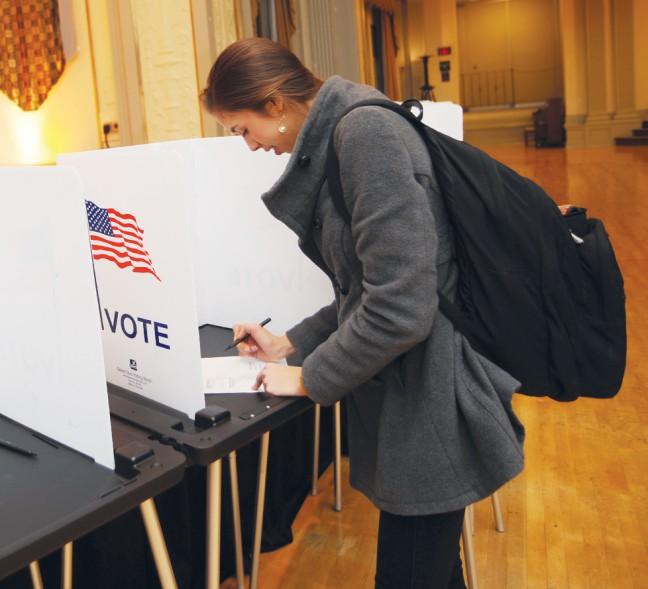A federal appeals court Sep. 26 ruled not to hear discussion on Wisconsin’s recently-implemented voter ID law, which means that all voters must bring photographic identification with them to the polls, a move that will invariably harm turnout in the upcoming November general elections.
Prior to that, legislation was passed Sept. 12, dictating that all voters must present photo ID before being allowed to vote. It had been suspended after a 2012 primary by judges in federal and state courts, before it stumbled its way through the legislative system in the interim, relying on state Republicans and judiciaries to make it through.
While concerns that forcing voters to show identification would violate the 14th Amendment, the appeals court ruled less than a week ago that no such infringement existed, allowing the ruling to take effect just in time for Election Day.
However, this ruling wasn’t always so cut-and-dry. In April, a federal judge deemed the voter ID law unconstitutional based on violations of both the 14th Amendment and Section 2 of the Voting Rights Act.
The 14th Amendment does not allow states to deny “life, liberty or property, without due process of the law” or to “deny any person within its jurisdiction the equal protection of the laws.” Because states’ responsibilities to their citizens are explicitly mentioned, this amendment expanded every citizen’s rights. Additionally, the Voting Rights Act, as stated by the New York Times, “bans states from imposing rules that abridge a citizen’s right to vote based on race.”
It seems obvious that the 14th Amendment would indeed be violated, because by only allowing access to polls on the basis of ID, states are denying some of their citizens, such as minorities and college students, the ability to partake in the democratic process. In the same vein, the Voting Rights Act was clearly found to be disregarded because the would-be-eligible voters that would not be able to obtain proper identification are minorities, who also happen to regularly vote Democrat.
The argument for so blatantly neglecting this legislation is that photo identification will help uphold, as Republicans say, “electoral integrity.” Judge Lynn Aldeman, who ruled in April that Wisconsin’s voter ID law is illegal, responded to the allegation that the law will protect against voter fraud by saying, “Virtually no voter impersonation occurs in Wisconsin.”
Rutgers University professor Lorraine Minnite, who studies voter fraud across the country, has monitored Wisconsin because of its same-day registration, which she says could increase the chances of fraud. Minnite kept records of all cases of voting mishaps, however last November she revealed that, from 2008 to 2013, she had only found 31 instances of “fraud,” 10 of which she discarded because they largely resulted from errors on the workers’ side.
Thirty-one states in the nation have some sort of identification law, but only 10, one of which is now Wisconsin, require voters sending in absentee ballots to attach a copy of a photo ID. Wisconsin has already mailed out more than 11,000 ballots to absentee voters before the re-implementation of the voter ID law, none of which include instructions on how to include photo identification.
In short, as the state scrambles to find more poll workers to ensure chaos doesn’t break out Nov. 4, and money is poured into videos and advertisements teaching voters what the new voting law entails (watch for more Chad Vader vids), voters are left trying to figure out exactly what they need in order to exercise their fundamental rights.














